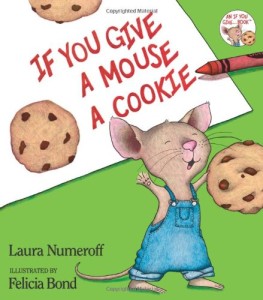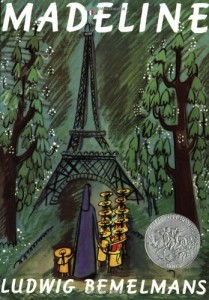aka Think Blue, Bark Two
Brad R. Torgersen, John C. Wright, T.C. McCarthy, Michael Senft, Henry Dampier, Lis Carey, Chris Gerrib, Alexandra Erin, Font Folly and Protest Manager are the featured participants in today’s roundup. (Title credit belongs to File 770 contributing editors of the day Morris Keesan and Craig R.)
Brad R. Torgersen
“Musings, not necessarily sorted” – May 13
Because ultimately this isn’t even about Sad Puppies, or what we said, or did not say, or what we did, or did not do.
This is about the Hugo award, and Worldcon, and decades of seeping stagnation, and the ossification of the mindset of the so-called “keepers” of the field’s self-proclaimed “most prestigious award.” An award that seems to too often deliberately avoid what’s actually happening in the marketplace, has become the personal toy of a self-selected crop of individuals who are happy to play at being large fish in small fishbowls, and does itself and its legacy a disservice by catering to taste-makers and taste-shapers. Both for reasons related to art, and for reasons related to politics. As I said above, the number of people in this group is finite. The actual fans (small f) are legion.
Sad Puppies 3 is an effort to bring fans (small f) to the table. No matter how much people have bashed it, lied about it, or tried to paint it as something it’s not, Sad Puppies 3 is “open source” and egalitarian. We asked for suggestions in the run-up to the formation of the slate, and we encouraged everyone to buy, read, and participate with an open mind. No expectations. No tests. No rules. We demanded nothing. We threatened nothing.
John C. Wright
“On the Unwritten Code” – May 13
A meme currently circulating among the Social Justice Warriors in their relentless attempts to made poor, poor big-eyed puppies sad with their heaping awards upon talent-free uberleftist message fiction is that Larry Correia and Brad Torgersen and Vox Day, merely by asking fans to read and nominate worthy works, have violated the strict and scrupulously observed unwritten code of gentlemen forbidding the crassness of asking for votes in public.
Asking for votes in private, or if you are a Politically Correct leftist in good standing, of course, provokes no furor, as it is evidently not a violation.
I call it a meme because it is a thoughtless and absurd white noise of words, a self replicating sentence phrase that means nothing and says nothing. It is an accusation leveled because the accusers have run out of other, more credible, accusations, and they are not well behaved enough to shut their mouths with dignity after their case has been argued and lost.
Without eventual, organized fan/consumer activism as seen in #gamergate, #sadpuppies will ultimately fail. More thoughts to come.
— T.C. McCarthy (@tcmccarthy_) May 13, 2015
Michael Senft on Relentless Reading (And Writing About It!)
“Marie Brennan and Mary Robinette Kowal talk fantastic women throughout history” – May 13
We also touched briefly on the Hugo controversy, with both authors weighing in, although Mary understandably was reticent to discuss Puppygate. Here are some excerpts from the interview.
Brennan: I sincerely hope that slates will not become the wave of the future, because I find them utterly antithetical to the entire spirit of the Hugos. It is one thing to say “here’s what I published last year” (I’m grateful for that one, honestly, because it reminds me of when things came out, and which categories they fit into, and oh hey I meant to read that story); that doesn’t bother me. Neither does people posting to say “here’s stuff I think is Hugo-worthy” — that’s just fannishness at work. But a named campaign, stretching across multiple years, whose public rhetoric focuses less on the awesomeness of the stories and more on the political message they will send to the “other side”? I’m not in favor. And that would be true even if the slate in question were filled with stories I had already enjoyed.
Kowal: I can’t actually comment on this much, because I decided to try to do something to bridge the gap between the multiple groups of fans and am crowdsourcing a set of supporting memberships for WorldCon. So I’m trying to stay neutral to avoid swaying votes. Which means that I’m declining any Hugo nominations next year (since a supporting membership this year means you can vote next year) and attempting to not express opinions about any of the nominees.
I will say that I’m seeing a lot of people, all around, who are feeling alienated. I think everyone needs to do a better job of listening.
(The principal text of the interview is online at azcentral.com.)
Font Folly
“The stories we have to tell” – May 13
“Moreover, men literally have no clue how much they talk. When Spencer asked students to evaluate their perception of who talked more in a given discussion, women were pretty accurate; but men perceived the discussion as being “equal” when women talked only 15% of the time, and the discussion as being dominated by women if they talked only 30% of the time.”
My conclusion: men think women talk too much because they think women should be silent.
This perception problem isn’t limited to gender issues. Any person in a position of power or privilege thinks that any time someone outside their group talks or is recognized more than a tiny fraction of the time that the others are dominating the situation…..
- And yes, it’s part of the reason that someone like Larry Correia and his cohorts—Brad Torgerson, Theodore Beale (aka Vox Day), and John C. Wright—can see more than one or two women or people of color nominated in a single category for the Hugo Awards and start screaming that science fiction is being taken away from people like them.
Henry Dampier
“About Progressive Situational Dominance” – May 13
The point of this is to argue that it’s a bad idea to challenge progressives in areas where they have institutional control. You could counter by using the recent example of right-wingers crashing the Hugo Awards, but ultimately, what that was good for was just demoralizing fringe progressives while heartening some right-wing genre fiction fans. The official science fiction author’s groups are, for the most part, still solidly progressive, and will continue to be so. Creating alternative institutions is more important and effective than trying to take over progressive institutions which are only nominally neutral.
The more profound impact on progressive institutions has come from the re-emergence of self publishing and small publishing enabled by Amazon and its eBook platform — a mostly neutral bookstore which has contributed much to the weakening of the progressive critical establishment, which they complain about endlessly. When the opposition complains about something, it’s wonderful, because they’re telling you where the pain is, and if they’re telling you where the pain is, then that’s where you should apply more pressure to cause more of it.
It’s also important to understand that, when making moral arguments in a progressive country, where most people believe in most of the tenets of progressivism, that you have the low ground when making such arguments. It’s futile to criticize progressives on moral grounds which they don’t accept, and which the majority of Westerners tend not to accept. You have to shore up the alternative moral institutions to provide those opposing sources of authority in order to create a self-sustaining resistance
Lis Carey on Lis Carey’s Library
“Championship B’Tok, by Edward M. Lerner” – May 13
Paragraph by paragraph, this story is decently written. Character development hovers in the vicinity of competent. The plot, unfortunately, wanders all over the place, and doesn’t go anywhere really interesting. It’s possible this is a piece of a larger whole, and I can easily conjecture a larger whole in which this piece would make more sense, and being doing some important work for the larger story. Sadly, that is in no way indicated, and it’s nominated as a novelette.
Chris Gerrib on Heroines of Fantasy
“Wednesday Review: A Sword Into Darkness” – May 13
There’s an ongoing debate in Science Fiction at the moment. One very loud faction says people are abandoning SF because all our stories are “social justice novels” and we’re handing out awards not for good work but to hit a racial / ethnic / gender checklist. Since I vote on one of the awards (the Hugos) I found that argument rather unconvincing. One of the gentlemen on the other side, I discovered, had penned an SF novel entitled A Sword Into Darkness [by Thomas A. Mays]. The ebook price was right, so I bought it and read it. Overall, it’s a pretty good book – I’d give it three stars.
Sad Puppies
“Celebrating What Is Best In Science Fiction: Foundation” – May 12
Over the past month we here in the Sad Puppies Revolutionary Vanguard Party Ministry of Truth have received a number of questions about which classic works of SF do and don’t exemplify the goals of the Party. While our cohort John Z. Upjohn has done a fantastic job identifying SJW-infused works, we do not wish to present ourselves as wholly negative, so today we’re going to talk about one of the all time great works of SF, a classic of yesteryear which could never win a Hugo today. Yes, Isaac Asimov’s Foundation.
Alexandra Erin on Blue Author Is About To Write
“Sad Puppies Review Books: IF YOU GIVE A MOUSE A COOKIE” – May 13
After a few hours of study, it seemed obvious to me that there must be an agenda at work, and as soon as I knew there was an agenda I could see it everywhere. It’s so easy to see agendas I’m surprised more people don’t do it.
The reason that SJWs have arranged for this hollow mockery of a book to be praised by all quarters is that it is basically a modest proposal for welfare benefits to immigrants. It starts by asking you the reader to imagine a mouse just shows up on your door unannounced and says he’s hungry, and then suggesting that you feed him. The words like “if” and “might” make this sound so polite, so reasonable. The rhythm of the book is I believe intended to lull the reader into a daze where you will nod along. “Makes sense,” you will say to yourself. “If a bunch of hungry vermin want to invade my home, why shouldn’t I give them the food off my table?”
https://twitter.com/ProtestManager/status/598362225460391936
And I don’t know whether I’m emotionally ready for this, but it is rather stfnal….


